
John Jamieson DD was a Scottish minister of religion, lexicographer, philologist and antiquary. His most important work is the Etymological Dictionary of the Scottish Language.

Thomas Chalmers, was a Scottish Presbyterian minister, professor of theology, political economist, and a leader of both the Church of Scotland and of the Free Church of Scotland. He has been called "Scotland's greatest nineteenth-century churchman".
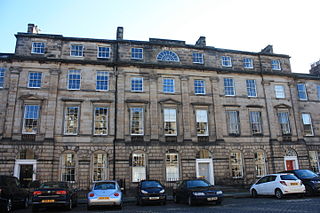
Marcus Dods was a Scottish divine and controversial biblical scholar. He was a minister of the Free Church of Scotland. He served as Principal of New College, Edinburgh.

Robert Murray M'Cheyne was a minister in the Church of Scotland from 1835 to 1843. He was born at Edinburgh on 21 May 1813, was educated at the university and at the Divinity Hall of his native city, and was assistant at Larbert and Dunipace. A mission of inquiry among the Jews throughout Europe and in Palestine, and a religious revival at his church in Dundee, made him feel that he was being called to evangelistic rather than to pastoral work, but before he could carry out his plans he died, on 25 March 1843. McCheyne, though wielding remarkable influence in his lifetime, was still more powerful afterwards, through his Memoirs and Remains, edited by Andrew Bonar, which ran into far over a hundred English editions. Some of his hymns became well known and his Bible reading plan is still in common use.

Sir William Robertson Nicoll was a Scottish Free Church minister, journalist, editor, and man of letters.
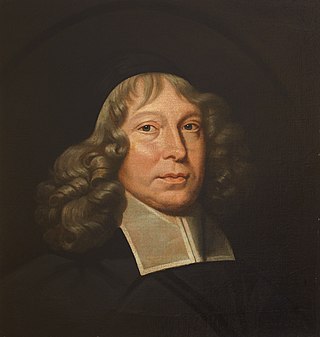
Samuel Rutherford was a Scottish Presbyterian pastor and theologian and one of the Scottish Commissioners to the Westminster Assembly.

Robert Wodrow was a Scottish minister and historian, known as a chronicler and defender of the Covenanters. Robert Wodrow was born at Glasgow, where his father, James Wodrow, was a professor of divinity. Robert was educated at the university and was librarian from 1697 to 1701. From 1703 till his death, he was parish minister at Eastwood, near Glasgow. He had sixteen children, his son Patrick being the "auld Wodrow" of Burns's poem Twa Herds.

Archibald Hamilton Charteris was a Scottish theologian, a Moderator of the General Assembly of the Church of Scotland, professor of biblical criticism at the University of Edinburgh and a leading voice in Church reforms. He is credited as being the father of the Woman's Guild and founder of "Life and Work" magazine.

James Buchanan (1804–1870) was a preacher and theological writer. He was born in 1804 at Paisley, and studied at the university of Glasgow. In 1827 he was ordained Church of Scotland minister of Roslin, near Edinburgh, and in 1828 he was translated to the large and important charge of North Leith. In this charge he attained great fame as a preacher, being remarkable or a clear, vigorous, and flowing style, a graceful manner, a vein of thrilling tenderness, broken from time to time by passionate appeals, all in the most pronounced evangelic strain. In 1840 Buchanan was translated to the High Church, Edinburgh, and in 1843, after the disruption, he became first minister of St. Stephen‘s Free Church. In 1845 he was appointed professor of apologetics in the New College, Edinburgh, and in 1847, on the death of Dr. Chalmers, he was transferred to the chair of systematic theology, continuing there till his resignation in 1868.

John Campbell Hamilton-Gordon, 1st Marquess of Aberdeen and Temair, was a British politician. Born in Edinburgh, Aberdeen held office in several countries, serving twice as Lord Lieutenant of Ireland and serving from 1893 to 1898 as Governor General of Canada.
Alastair Iain Macdonald Haggart was an eminent Anglican priest.

Andrew Mitchell Thomson (1779–1831) was a minister of the Church of Scotland, known as an evangelical activist and political reformer.
James Craigie Robertson was a Scottish Anglican churchman, canon of Canterbury Cathedral, and author of a History of the Christian Church.
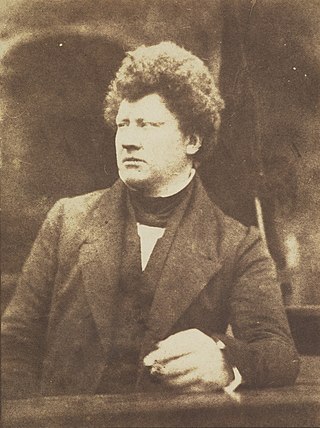
William Cunningham was a Scottish theologian and co-founder of the Free Church of Scotland. He was Moderator of the Free Church in 1859.
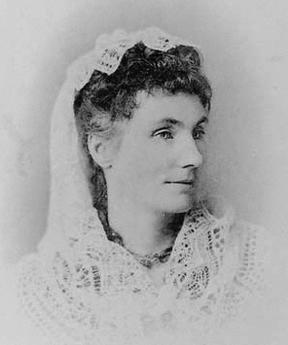
Jessie Margaret Edmondston Saxby was a writer and folklorist from Unst, one of the Shetland Islands of Scotland. She also had political interests and was a suffragette.
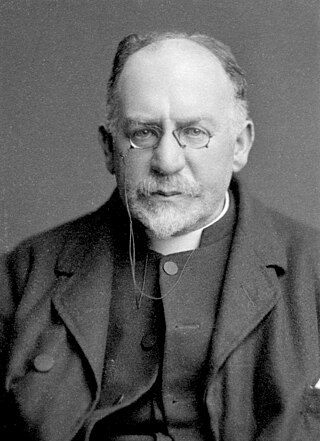
George Milligan DCL DD was a Scottish minister of the Church of Scotland who served as Moderator of the General Assembly of the Church of Scotland in 1923. He was professor of divinity and biblical criticism at the University of Glasgow.
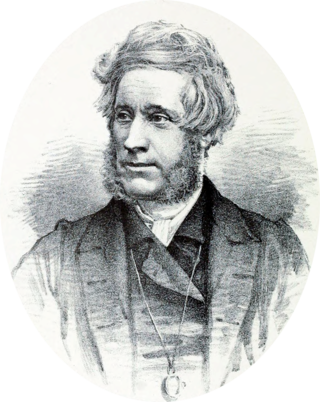
William King Tweedie (1803–1863) was an historian, biographer and a minister of the Free Church of Scotland Tolbooth Church, Edinburgh.
Thomas Smith was a Scottish missionary and mathematician who was instrumental in establishing India's zenana missions in 1854. He served as Moderator of the General Assembly of the Free Church of Scotland 1891/92.

Nathaniel Paterson was a Scottish minister who served as Moderator of the General Assembly to the Free Church of Scotland in 1850/51. He was a close friend of Walter Scott and was included in his circle of "worthies".

Alexander Neil Somerville (1813–1889) was a Scottish minister and evangelist, who served as Moderator of the General Assembly for the Free Church of Scotland at Inverness in 1886/87. Glasgow University called him "Missionary to the World".



















